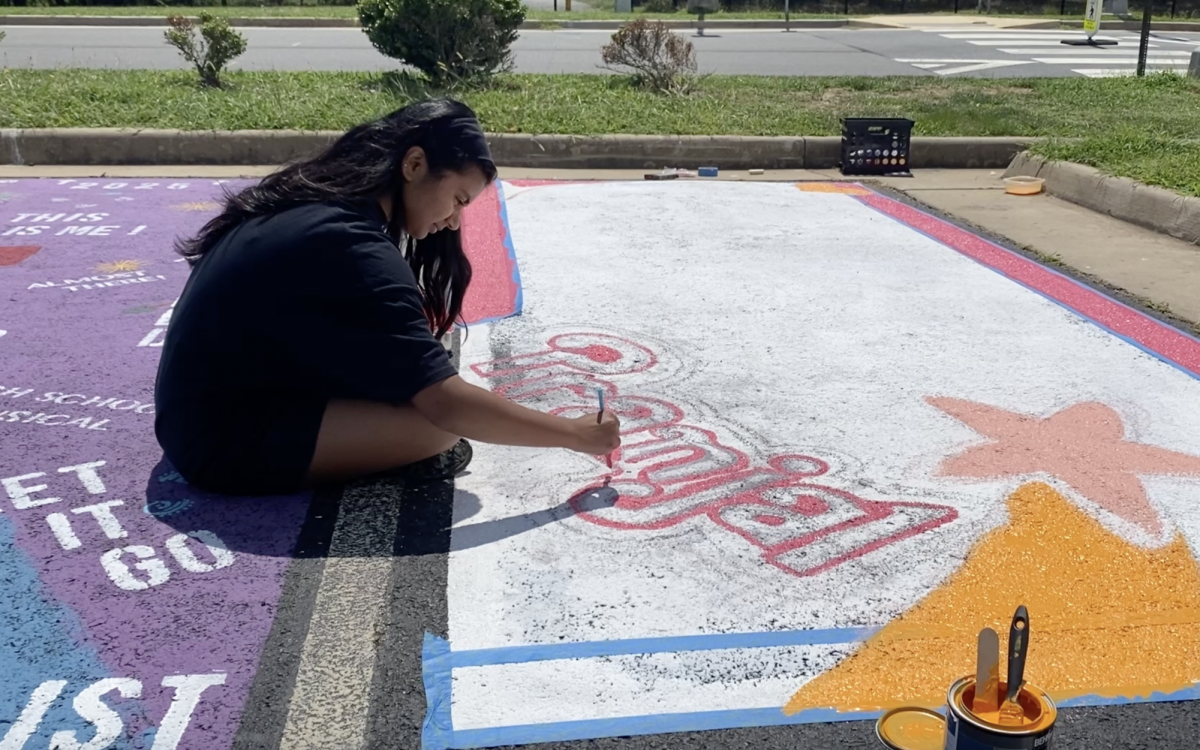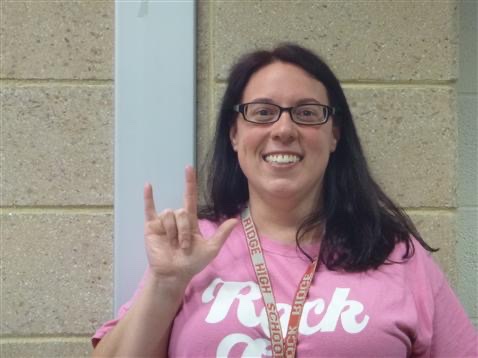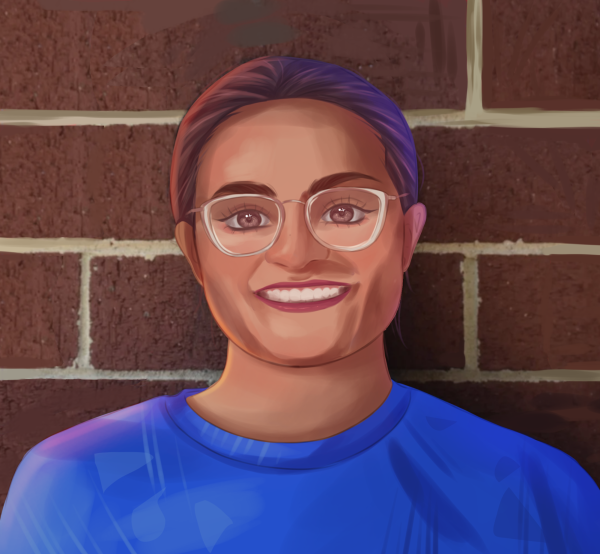Across Loudoun County Public Schools, a new position opened up for the 23-24 school year: Student Support Advisor (SSA). If a student is having trouble showing up to school or failing classes, the SSA shows up to help and get students back on track.
Former American Sign Language (ASL) teacher Elizabeth Bush has been appointed to the position of SSA. “I’m kind of an in-between person with admin, counseling, teachers, students, [and] parents,” Bush said. “Anyone can [say], ‘Hey, I notice this person is struggling’ or ‘I’m struggling. What do I do?’ and then I can help connect them with the right [resources].”
Bush’s experience inside the classroom is extensive. Although she’s been teaching ASL for 16 years in various schools and two different counties, Bush didn’t start learning the language until her junior year of high school. “I had some extra classes in my schedule,” she said. “I had already taken four years of Spanish, and felt I was good with that, and wanted [a change]. I learned [ASL] easily, and it was fun [for me].”
Bush always knew she wanted to be a teacher, but she was unsure of what subject she wanted to teach. Originally, she wanted to be an elementary school teacher, but she segued into a lot of different career paths before finally settling on being an ASL teacher. She still keeps up with the language and signs even though she no longer teaches it, and she continues to stay in contact with ASL teachers and deaf friends of hers.
While Bush is settled into her new position as the SSA, leaving ASL wasn’t easy. “It’s not that I didn’t love teaching ASL; I just found that I was pulled more to help students that were struggling [and needed extra support],” Bush said. She left big shoes to fill—her vacant position was not filled by a full-time ASL teacher. “It broke my heart when they couldn’t find an in-person ASL teacher. I cried and cried, but I really like what I’m doing, and I feel like I am starting to help students. However, at the same time, I do miss being in a classroom teaching ASL.”
Changing positions can be overwhelming, but what truly made it difficult for Bush is that she no longer has a set routine for every day. “[The biggest adjustment] is not getting to know new students,” Bush said. “I [realized that] I am not standing in front of a classroom of students doing get-to-know-you things and teaching them their first signs. [Instead], I’m sitting in a meeting with 15 other adults, and this is definitely not as fun as [what I would be doing in a classroom]. I don’t know whether it’s an A day or a B day anymore. I knew it before because I was like ‘Yeah, these students are coming [today] and these students [won’t be here, but I’ll see them the next day].’ Now I don’t really have that.”
Her new position is the complete opposite of what she was doing before. Instead of having students come to her, she goes to students she sees struggling. For example, if a student is missing specific days of school, Bush will reach out and ask why that is or if there is anything she can do to help. However, every school is utilizing this position differently. “It’s a student support-centered [position] where I provide support to students in various ways; whether that’s through counseling, things they can do to help themselves, or whatever support they need so that they can be successful,” Bush said.
Bush has always had a very positive and comforting impact on her students. “Every time I asked [Bush] a question when I wasn’t sure of something, she explained it thoroughly and knew what she was talking about,” junior Jiya Chadha said. “In her class, I was never uncomfortable asking questions because I knew she would answer them well.”
Over her nine years teaching at the Rock, Bush supported students before she took up the new position. Her classroom was a safe environment with like-minded individuals all looking to learn the same thing. “Being in her class was so fun,” junior Charisse Capparos said. “I loved her teaching style; I felt it was the only way I would ever be able to learn ASL.”

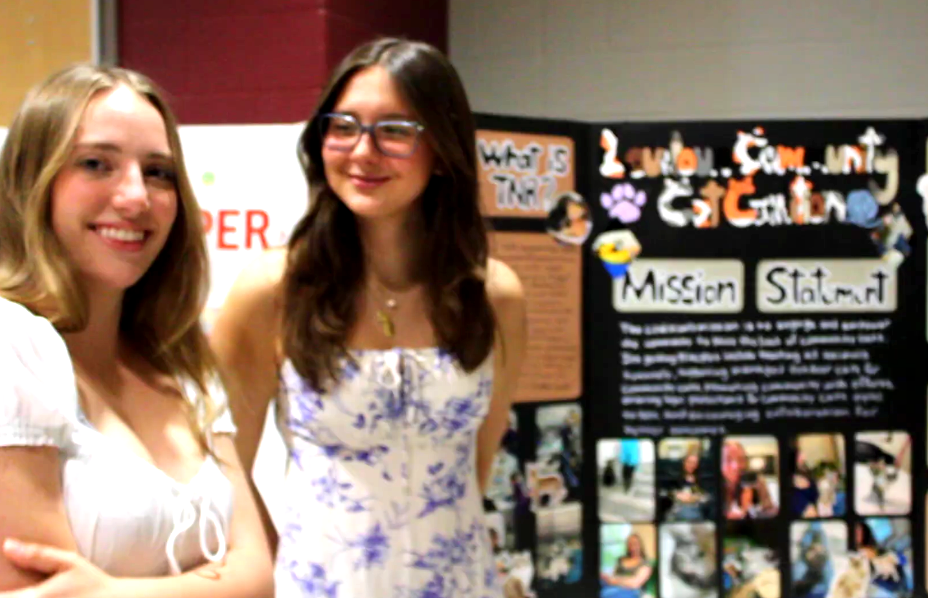







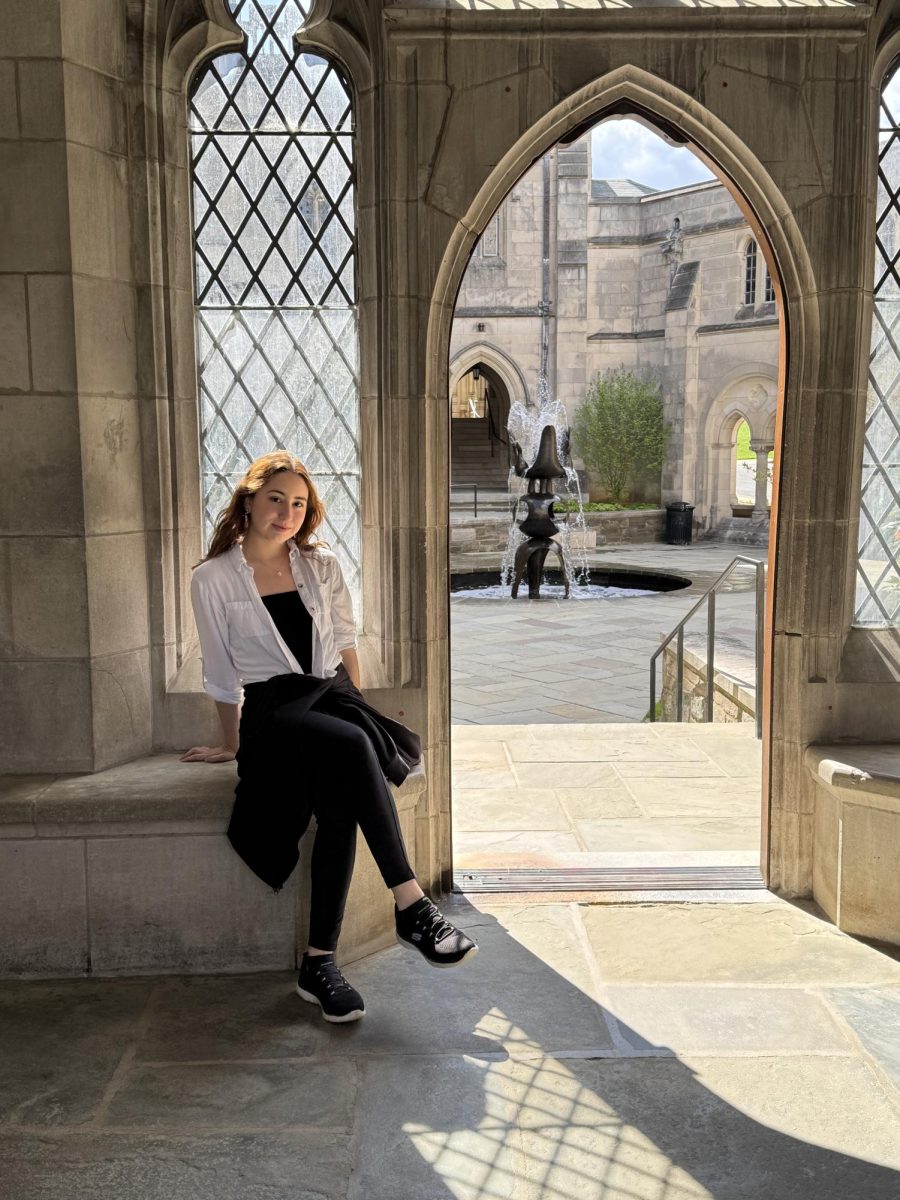



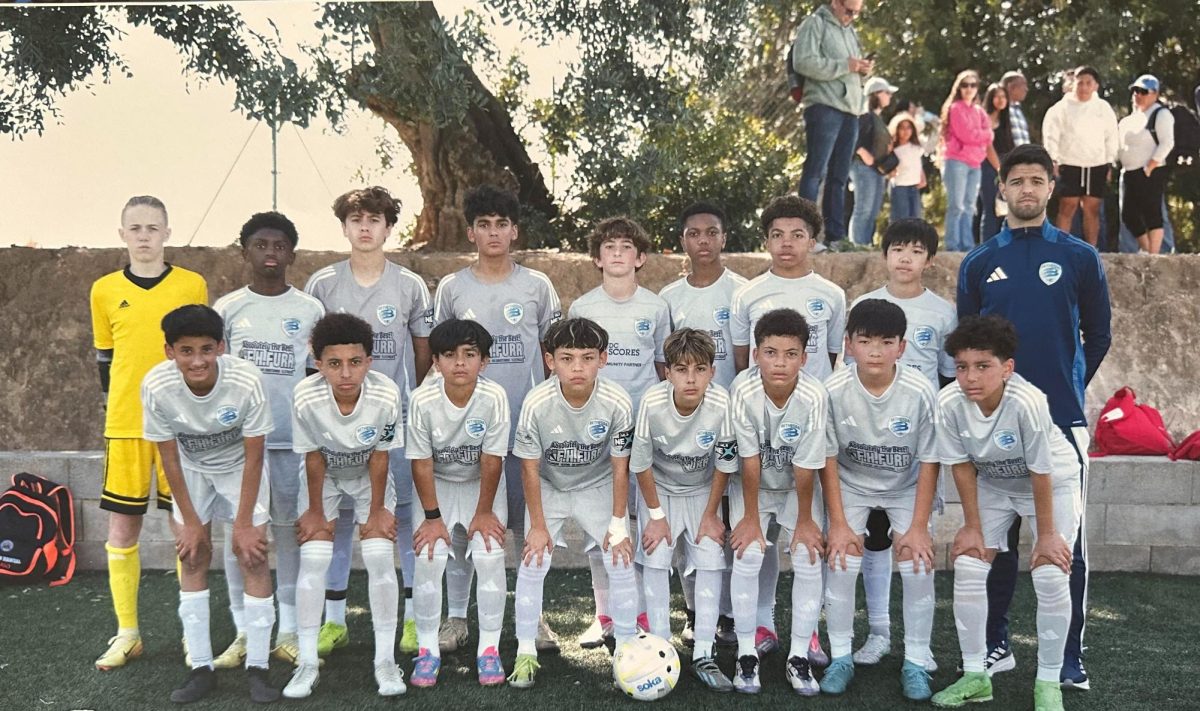



![The Phoenix varsity volleyball team lines up for the national anthem. “We were more communicative [with each other] during this game, and I feel like we kept our energy up, especially after the first set,” senior Jessica Valdov said.](https://theblazerrhs.com/wp-content/uploads/2024/10/DSC_0202-1200x800.jpg)








![Junior Alex Alkhal pitches the ball. “[I] just let it go and keep practicing so we can focus on our goal for the next game to get better as a team,” Alkhal said.](https://theblazerrhs.com/wp-content/uploads/2025/05/DSC_0013-1-1200x929.jpg)


















